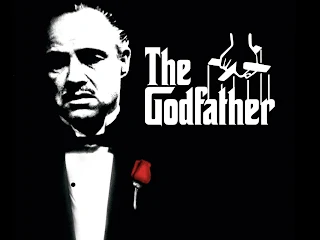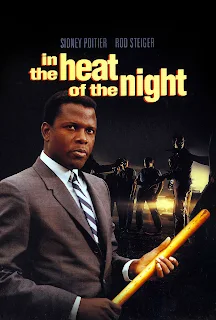Vietnam and Vietnamese people
Vietnam
Vietnam (i/ˌviːətˈnɑːm/, /viˌɛt-/, /-ˈnæm/, /ˌvjɛt-/;[7] Vietnamese pronunciation: [viət˨ naːm˧]) officially the Socialist Republic of Vietnam (Cộng hòa Xã hội chủ nghĩa Việt Nam), is the easternmost country on the Indochina Peninsula in Southeast Asia. With an estimated 90.3 million inhabitants as of 2012, it is the world's 13th-most-populous country, and the eighth-most-populous Asian country. The name Vietnam translates as "South Viet", and was officially adopted in 1945. The country is bordered by China to the north, Laos to the northwest, Cambodia to the southwest, and the South China Sea to the east.[8] Its capital city has been Hanoi since the reunification of North and South Vietnam in 1976.
The Vietnamese became independent from Imperial China in 938 AD, following the Battle of Bạch Đằng River. Successive Vietnamese royal dynasties flourished as the nation expanded geographically and politically into Southeast Asia, until the Indochina Peninsula was colonized by the French in the mid-19th century. The First Indochina War eventually led to the expulsion of the French in 1954, leaving Vietnam divided politically into two states, North and South Vietnam. Conflict between the two sides intensified, with heavy foreign intervention, during the Vietnam War, which ended with a North Vietnamese victory in 1975.
Vietnam was then unified under a Communist government, but was politically isolated and impoverished. In 1986, the government initiated a series of economic and political reforms, which began Vietnam's path towards integration into the world economy.[9] By 2000, it had established diplomatic relations with most nations. Vietnam's economic growth has been among the highest in the world since 2000,[9] and in 2011 it had the highest Global Growth Generators Index among 11 major economies.[10] Its successful economic reforms resulted in it joining the World Trade Organization in 2007. However, the country still suffers from relatively high levels of income inequality, disparities in healthcare provision, and poor gender equality.[11][12][13][14][15]
Vietnamese people
The Vietnamese people (Vietnamese: người Việt or người Kinh)[needs IPA] are an ethnic group originating from present-day northern Vietnam and southern China. They are the majority ethnic group of Vietnam, comprising 86% of the population as of the 1999 census, and are officially known as Kinh to distinguish them from other ethnic groups in Vietnam. The earliest recorded name for the ancient Vietnamese people appears as "Lạc".
Although geographically and linguistically labeled as Southeast Asians, long periods of Chinese domination and influence have placed the Vietnamese culturally closer to East Asians, or more specifically their immediate northern neighbours, the Southern Chinese and other tribes within the South China. The word Việt is shortened from Bách Việt, a name used in ancient times. Nam means "south".
If regarded as a single ethnic group, the Vietnamese constitute one of the world's largest with 77 million people.[25]
Vietnamese proverb
@ Ác giả, ác báo.
Equivalent: What you reap is what you sow.
References
Vietnam
[1]^ a b Robbers, Gerhard (30 January 2007). Encyclopedia of world constitutions. Infobase Publishing. p. 1021. ISBN 978-0-8160-6078-8. Retrieved 1 July 2011.
[2]^ a b c Vietnam - Geography. Index Mundi. 12 July 2011. Retrieved 19 December 2011.
[3]^ a b c d e f g "Vietnam". International Monetary Fund. October 2012 data. Retrieved 3 January 2013.
[4]^ "Gini Index". World Bank. Retrieved 2 March 2011.
[5]^ "Human Development Report 2010. Human development index trends: Table G". The United Nations. Retrieved 5 January 2011.
[6]^ "Socialist Republic of Vietnam". Travelsradiate.com. Retrieved 6 August 2011.
[7]^ Vietnam. Dictionary.com. Retrieved 2 February 2013.
[8]^ The South China Sea is referred to in Vietnam as the East Sea (Biển Đông).
[9]^ a b "Vietnam's new-look economy". BBC News. 18 October 2004.
[10]^ Weisenthal, Joe (22 February 2011). "3G Countries". Businessinsider.com. Retrieved 6 August 2011.
[11]^ "Vietnam Inequality Report". Mekong Economics. 2005. Retrieved 7 November 2010.
[12]^ "Distribution of Family Income – Gini Index". CIA World Factbook, 2008 data. Retrieved 27 November 2011.
[13]^ a b "ScienceDirect – Journal of Econometrics: On decomposing the causes of health sector inequalities with an application to malnutrition inequalities in Vietnam". Sciencedirect.com. 12 September 2002. Retrieved 6 August 2011.
[14]^ a b Goodkind, D. (1995). "Rising Gender Inequality in Vietnam Since Reunification". Pacific Affairs 68 (3): 342–359. doi:10.2307/2761129. edit
[15]^ a b Gallup, John Luke (2002). "The wage labor market and inequality in Viet Nam in the 1990s". Ideas.repec.org. Retrieved 7 November 2010.
Vietnamese people
[25]^ "
CIA World Factbook". May 8th, 2012. Retrieved 11 May 2012.
http://en.wikipedia.org/wiki/Vietnam
http://en.wikipedia.org/wiki/Vietnamese_people
http://en.wikiquote.org/wiki/Vietnamese_proverbs









